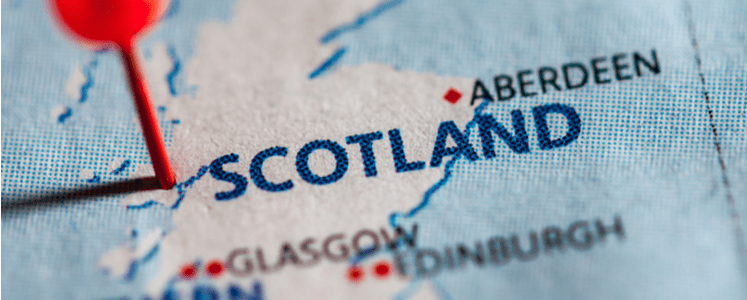2022-23 Scottish Budget
Kate Forbes delivered the Scottish Government’s Budget for the 2022-23 fiscal year on Thursday 9 December 2021. We outline the tax changes that individuals residing in Scotland should be aware of from a personal tax perspective. Key takeaways from a…
Blog10th Dec 2021
Kate Forbes delivered the Scottish Government’s Budget for the 2022-23 fiscal year on Thursday 9 December 2021. We outline the tax changes that individuals residing in Scotland should be aware of from a personal tax perspective.
Key takeaways from a Personal Tax perspective:
- Income tax rates have been frozen. The starter and basic rate bands will increase by CPI Inflation (3.1%). The Higher and Top Rate thresholds will remain frozen in cash terms.
- No change in Land and Buildings Transaction Tax (LBTT).
- Council Tax rates will be unfrozen
Income Tax
As anticipated, it was announced that there would be no changes to income tax rates for 2022-23. There will be an easing of the Starter and Basic Rate bands, in line with CPI inflation at 3.1%. The higher rate bands will be frozen at 2021-22 rates.
|
Band |
Income Range |
Rate |
| Starter Rate |
Over £12,570 – £14,732 |
19% |
| Basic Rate |
Over £14,732 – £25,688 |
20% |
| Intermediate Rate |
Over £25,688 – £43,662 |
21% |
| Higher Rate |
Over £43,662 – £150,000* |
41% |
| Top Rate |
Over £150,000** |
46% |
*Assumes individuals are in receipt of the Standard UK Personal Allowance
**The Top Rate remains at 2021-22 level. Those earning more than £100,000 will see their Personal Allowance reduced by £1 for every £2 earned over £100,000
The Scottish Rate of Income Tax rates are generally 1% higher for individuals earning in excess of £25,688, as compared to the rest of the UK.
These provisions are in addition to those which apply to the UK as a whole. In the UK Budget for 2022-23, Rishi Sunak announced an increase of employee National Insurance Contributions by 1.25%, to 13.25% and 3.25%. It was also announced that the UK personal allowance for income tax would be frozen at £12,570 and the annual exemption for capital gains tax frozen at £12,300.
Individuals in Scotland earning between £43,662 and £50,270 from non-savings income next year will feel the pinch. The National Insurance Upper Earnings Limit (UEL) is aligned to the Higher Rate tax band in England, meaning that this band of income will face 41% Income Tax, plus 13.25% National Insurance, totalling an effective tax rate of 54.25%. A Scottish taxpayer earning £50,000 will be £1,489.10 worse off, in comparison to an individual in England.
Similarly, individuals earning £100,000 will be £2,043.50 worse off in comparison to taxpayers in England. Scottish earners of £100k will pay tax of £29,475.10 versus £27,431.60 in England. Both will also contribute £6,967.90 in National Insurance.
| Scotland | England | |
| Income | £ 100,000.00 | £ 100,000.00 |
| Tax | £ 29,475.10 | £ 27,431.60 |
| Plus National Insurance | £ 6,967.90 | £ 6,967.90 |
| Total | £ 36,443.00 | £ 34,399.50 |
Property Tax – LBTT and ADS
Land and Buildings Transactions Tax, which is the Scottish equivalent tax to Stamp Duty Land Tax, will be unchanged for the coming year.
The Budget did draw attention to the Additional Dwelling Supplement. Whilst the rates are frozen, the forecasts predict that £125m of revenue will be generated by the 4% tax on second home ownership in current year. This represents one quarter of all LBTT receipts from residential transactions. The Scottish Government has announced a review of ADS, but this will not consider whether or not the levy should continue, but merely on its future operation.
It is important for individuals considering purchasing property Scotland to fully consider the implications of LBTT and the Additional Dwelling Supplement. The tax will apply regardless of whether the second property is to be used as a holiday home or as an investment.
Other provisions
Council Tax rates have been unfrozen for the coming year, meaning local authorities are free to set their own rates once more. Tax rises may be likely, in order to protect local services.
Other announcements were made to increase Child Payment (a Scotland-only benefit for low-income families with children under the age of six), award free bus travel for Scots under the age of 22, and a new minimum wage of £10.50 per hour has been introduced for public sector staff.
If you would like more information or guidance on issues relating to the Scottish 2022/23 Budget and its implications on your tax position, please contact Lyndsey Russell, Private Client Tax Manager.
Related services
